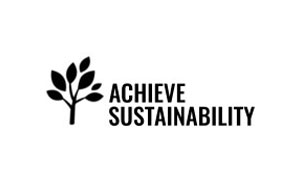Green Economy Trade
Green Economy Trade encompasses a broad range of activities and practices aimed at promoting sustainability and environmental responsibility.
- Here are several categories and subcategories of Green Economy Trade within the cleantech that you can use as Features when you are Add Listing in Global Cleantech Directory Platform. Green Economy Trade subcategories help people’s searching in the Global Cleantech Directory Platform by categorizing and finding the relevant wide range of agritech and how they can reflect the diverse aspects of Green Economy Trade, highlighting the importance of sustainability across various sectors and industries.
1. Renewable Energy Trade:
- – Solar Energy: Trade in solar panels, inverters, and related technologies.
– Wind Energy: Export and import of wind turbines and components.
– Hydropower: Trade in hydroelectric equipment and technology.
– Bioenergy: Biomass, biofuels, and related technologies.
2. Sustainable Agriculture and Food Trade:
- – Organic Farming: Trade in organic produce and inputs.
– Sustainable Fisheries: Eco-friendly fishing practices and products.
– Fair Trade Products: Ethically sourced and traded agricultural products.
3. Green Manufacturing and Industrial Trade:
- – Eco-friendly Materials: Biodegradable and recyclable materials.
– Energy-Efficient Machinery: Trade in energy-saving industrial equipment.
– Sustainable Textiles: Organic cotton, bamboo, and other sustainable fabrics.
4. Environmental Technologies:
- – Pollution Control Technologies: Equipment for air, water, and soil pollution control.
– Waste Management: Recycling and waste-to-energy technologies.
– Water Treatment: Technologies for purifying and conserving water.
5. Sustainable Transportation:
- – Electric Vehicles (EVs): Trade in electric cars, buses, and charging infrastructure.
– Public Transportation Solutions: Eco-friendly buses, trams, and trains.
– Bicycle and Pedestrian Infrastructure: Trade in bicycles and related infrastructure.
6. Green Building and Construction:
- – Energy-Efficient Building Materials: Insulation, windows, and other materials.
– Green Architecture: Sustainable design and construction practices.
– Renewable Energy Systems for Buildings: Solar panels, wind turbines, and geothermal systems for residential and commercial buildings.
7. Eco-friendly Consumer Goods:
- – Sustainable Apparel: Clothing made from organic or recycled materials.
– Green Household Products: Eco-friendly cleaning supplies, appliances, and electronics.
– Recycled and Upcycled Products: Goods made from recycled or repurposed materials.
8. Green Finance and Investment:
- – Green Bonds: Investments aimed at funding environmental projects.
– Sustainable Funds: Mutual funds and ETFs focused on green companies.
– Impact Investing: Investments made with the intention of generating positive environmental impact.
9. Sustainable Tourism:
- – Eco-tourism: Travel services that promote conservation and sustainability.
– Green Hotels: Accommodation with eco-friendly practices.
– Sustainable Travel Packages: Travel options that minimize environmental impact.
10. Carbon Markets and Offsetting:
- – Carbon Credits: Trade in carbon offsets and credits.
– Emissions Trading Systems (ETS): Market-based approach to controlling pollution.
11. Policy and Regulatory Frameworks:
- – Environmental Regulations: Laws and standards governing sustainable trade.
– Trade Agreements: Bilateral and multilateral agreements promoting green trade.
– Sustainability Standards: Certifications and standards like ISO 14001, Fair Trade, and LEED.
12. Education and Training:
- – Sustainability Training Programs: Courses and certifications in green practices.
– Research and Development: Initiatives focused on advancing green technologies and practices.

Empowering a Sustainable Future
Innovate, Connect, Transform
Recommended Tags
Green Economy Trade
- Here are some commonly used tags in the Green Economy Trade within the cleantech that you can use when you are Add Listing in Global Cleantech Directory Platform. These tags can help in categorizing and finding information related to Green Economy Trade when people are searching in the Global Cleantech Directory Platform.
Renewable Energy Trade
- Solar Technology Exports
Wind Turbine Trade
Bioenergy Products
Geothermal Equipment
Renewable Energy Certificates(RECs)
RECs
Clean Energy Investments
Sustainable Agriculture Trade
- Organic Produce Trade
Fair Trade Products
Sustainable Livestock
Agroforestry Products
Eco Friendly Packaging
Local land Seasonal Produce
Water Management Trade
- Water Efficient Technologies
Desalination Equipment
Water Recycling Systems
Irrigation Solutions
Water Treatment Products
Smart Water Management
Waste Management Trade
- Recycling Technologies
Wasted Energy Solutions
Composting Equipment
Circular Economy Products
E Waste Recycling
Zero Waste Products
Sustainable Transportation Trade
- Electric Vehicles(EVs)
EVs
Hybrid Vehicles
Public Transit Solutions
Bike Sharing Systems
Charging Infrastructure
Sustainable Fuels
Green Building Materials Trade
- Recycled Building Materials
Sustainable Insulation
Energy Efficient Windows
Green Roofing Materials
Low VOC Paints
Low VOC Finishes
Sustainable Flooring
Eco-Friendly Products Trade
- Biodegradable Products
Eco Friendly Cleaning Products
Sustainable Fashion
Reusable Items
Energy Efficient Appliances
Green Packaging
Sustainable Industry Trade
- Green Manufacturing Technologies
Sustainable Supply Chain Solutions
Pollution Control Equipment
Energy Management Systems
Sustainable Mining Practices
Carbon Captureand Storage
Green Finance and Investments
- Green Bonds
ESG Investments
Sustainable Banking
Climate Finance
Impact Investing
Renewable Energy Funds
Environmental Services Trade
- Environmental Consulting
Carbon Offset Programs
Sustainability Reporting
Ecosystem Services
Green Certification Services
Climate Adaptation Services
Sustainable Tourism Trade
- Ecotourism Packages
Green Hotel Certifications
Sustainable Travel Services
Cultural Heritage Tourism
Wildlife Conservation Tourism
Adventure Eco Tourism
Policy and Governance
- Environmental Regulations
Green Trade Policies
Sustainable Development Goals(SDGs)
SDGs
Tradeand Climate Agreements
Green Public Procurement
Trade Facilitation for Green Products
Innovation and Technology
- Clean Technology Exports
Smart City Solutions
Green Tech Startups
Sustainable R&D Collaborations
Climate Smart Agritech
Energy Efficient Technologies
Social Equity in Trade
- Fair Trade Certification
Ethical Sourcing
Inclusive Trade Policies
Community Based Trade Initiatives
Gender Equality Trade
Labor Rights Green Trade
Biodiversity and Ecosystem Services Trade
- Sustainable Fisheries
Forest Products Certification
Wildlife Conservation Products
Ecosystem Restoration Services
Natural Capital Investments
Biodiversity Offsetting
Popular Q&A
Green Economy Trade
- Here are some popular questions and answers (Q&A) related to Green Economy Trade within the context of cleantech:
A green economy is an economic system aimed at reducing environmental risks and ecological scarcities, promoting sustainable development without degrading the environment. It emphasizes the efficient use of resources, low carbon emissions, and social inclusivity.
Trade contributes to a green economy by facilitating the exchange of environmentally friendly goods and services, promoting sustainable practices across supply chains, and enabling the transfer of green technologies and innovations between countries.
Green economy trade policies are regulations and standards that promote sustainable trade practices. These include tariffs and trade agreements that favor eco-friendly products, incentives for green technology exports, and standards for reducing the environmental impact of traded goods and services.
1. Eco-friendly Packaging: Using biodegradable or recyclable materials for packaging.
2. Sustainable Sourcing: Ensuring raw materials are sourced from sustainable and renewable resources.
3. Energy-Efficient Transport: Utilizing transportation methods that minimize carbon emissions.
4. Trade in Green Technologies: Exporting and importing technologies that support renewable energy, energy efficiency, and waste management.
1. Market Differentiation: Businesses can stand out by offering environmentally friendly products.
2. Compliance and Risk Management: Adhering to environmental regulations reduces the risk of fines and legal issues.
3. Cost Savings: Sustainable practices can lead to long-term cost reductions through energy efficiency and waste reduction.
4. Access to New Markets: Growing consumer demand for sustainable products can open up new market opportunities.
– Higher Initial Costs: Investing in sustainable technologies and practices can be expensive initially.
– Supply Chain Complexity: Ensuring all components of the supply chain adhere to green standards can be challenging.
– Regulatory Hurdles: Navigating varying environmental regulations across different regions can be complex.
– Consumer Awareness: Educating consumers about the benefits of green products may require significant effort.
Businesses can transition to green trade practices by
– Conducting Environmental Audits: Assessing their current impact on the environment.
– Setting Sustainability Goals: Establishing clear, measurable objectives for reducing their environmental footprint.
– Collaborating with Partners: Working with suppliers and partners who share their commitment to sustainability.
– Investing in Technology: Adopting green technologies and practices to enhance sustainability.
– Educating Consumers: Raising awareness about the benefits of their sustainable products and practices.
– EU-Mercosur Trade Agreement: Includes provisions for environmental protection and sustainable development.
– Trans-Pacific Partnership (TPP): Contains chapters on environmental protection and sustainable trade practices.
– African Continental Free Trade Area (AfCFTA): Emphasizes the importance of sustainable trade practices in its framework.
Yes, green trade can significantly contribute to achieving the Sustainable Development Goals (SDGs) by
– Promoting Responsible Consumption and Production: Encouraging sustainable practices across industries.
– Climate Action: Reducing carbon footprints through eco-friendly trade practices.
– Affordable and Clean Energy: Facilitating the trade of renewable energy technologies.
– Economic Growth: Supporting sustainable economic growth and job creation through green industries.
International organizations such as the United Nations, World Trade Organization (WTO), and World Bank play a crucial role by:
– Setting Global Standards: Establishing international standards for sustainable trade practices.
– Facilitating Agreements: Promoting trade agreements that include environmental provisions.
– Providing Funding: Offering financial assistance for green projects and initiatives.
– Sharing Best Practices: Disseminating information on successful green trade practices and policies.
Governments can support green economy trade by:
– Implementing Green Tariffs: Lowering tariffs on environmentally friendly goods and services.
– Providing Incentives: Offering subsidies and tax breaks for businesses adopting sustainable practices.
– Establishing Standards: Creating and enforcing environmental standards for products and services.
– Fostering Innovation: Investing in research and development of green technologies.
- These questions and answers provide a comprehensive overview of Green Economy Trade, highlighting its importance, benefits, challenges, and the roles of various stakeholders in promoting sustainable trade practices.
- Explore the link to learn about Green Economy Trade category and discover related insights from our Annual EarthDay Conference Speech


